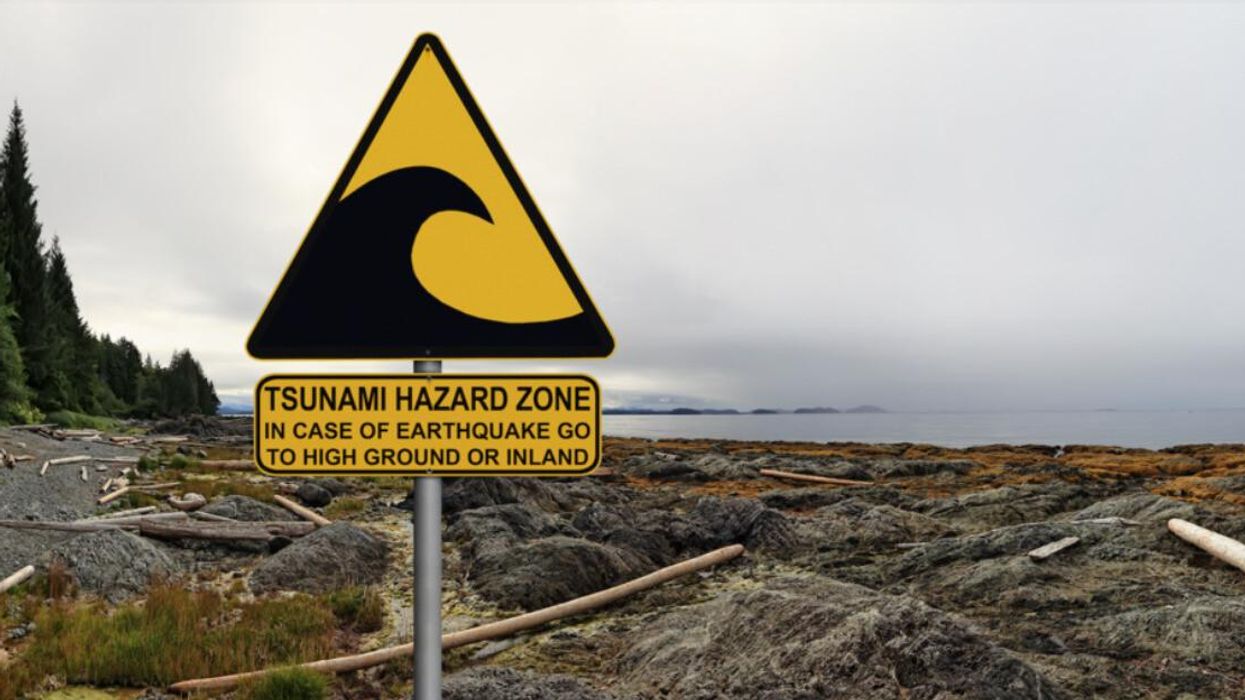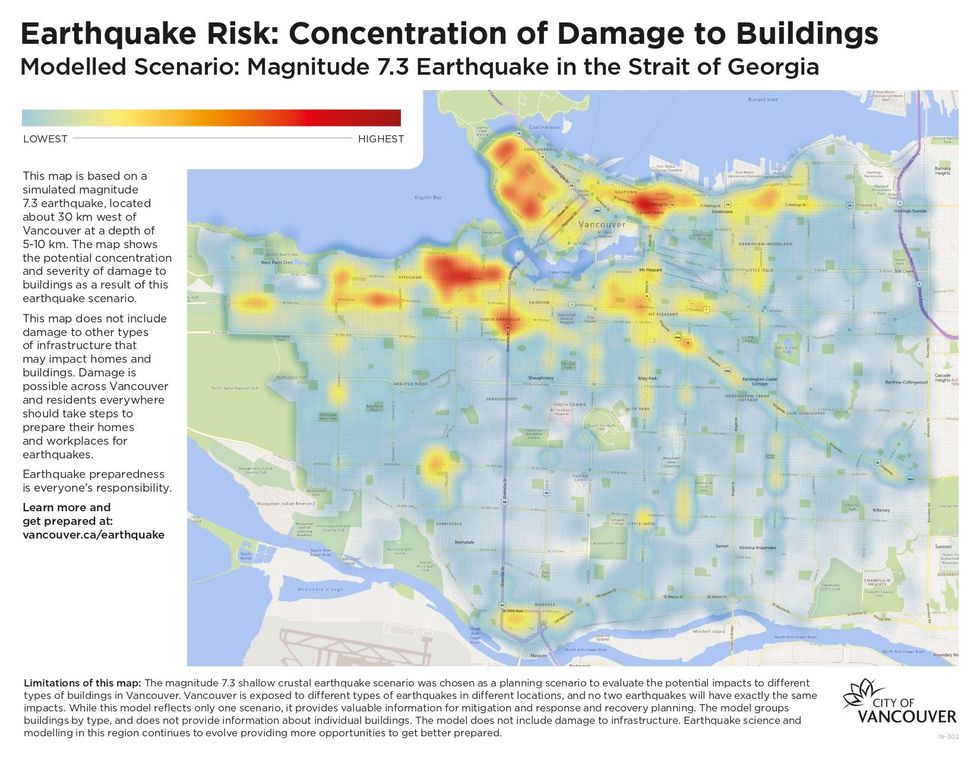These Are The Most At-Risk Neighbourhoods In Vancouver If An Earthquake Hits
Here's how you can prepare for 'the Big One.'

Sign indicating tsunami hazard zone in B.C.
The devastating earthquake in Turkey has reminded many Canadians of the looming "Big One" in Vancouver: an earthquake that's anticipated to severely affect the West Coast.
According to The City of Vancouver, certain areas of the Lower Mainland are at high risk of having an earthquake, and there are certain neighbourhoods in Metro Vancouver that are at greater infrastructural risk than others.
A map created by the City of Vancouver "based on a simulated magnitude 7.4 earthquake" indicates which areas have buildings that are more susceptible to damage from earthquakes.
The areas highlighted in red and orange are at the highest risk, and areas highlighted in cooler colours are at a lower risk of severe damage to buildings.
Woodframe structures are not as sturdy as, say, ductile buildings. That said, buildings in Kitsilano, the West End and Strathcona appear to be at higher risk of damage.
Folks in South Vancouver, however, are at less risk of building damage during an earthquake. This map doesn't account for all possible damage though, and everyone who lives in the area should be prepared for an earthquake regardless.

How should I prepare for an earthquake in Vancouver?
There are a few things you can do to prepare yourself for an earthquake.
Start by getting to know your neighbours — doing so will help to build earthquake-resilient communities. In disaster situations, you might need to rely on your neighbours for help (or vice versa).
Also, be sure to download the Alertable app to stay updated on local emergencies.
Make a plan with your family or roommates and set a meeting place at your nearest Disaster Support Hub.
What is in an earthquake safety kit?
Store a grab-and-go bag with enough supplies to support each person in your house for a few days. Bottled water, snacks, whistles, flashlights, first aid kits, medications, glasses and even cash may come in use.
The City of Vancouver advises keeping an emergency kit for your pet, too.
What should you do during and after an earthquake?
If you are outside, stay outside and move away from any trees, buildings or power lines. If you're inside, hide under a desk. If there isn't a desk, crouch by an interior corner of a room, covering your head and neck with your arms.
Afterwards, be careful around broken glass and debris and open windows and doors if you smell any gas.
Move to high ground. Vancouver earthquakes are likely to be accompanied by a tsunami, so make sure it's safe to exit your building and head away from the water if you're near any. Follow your emergency plan and stay on alert for any environmental threats before heading to your nearest Disaster Support Hub.
- An Earthquake Struck Off The Coast Of BC & It Was The Second One This Month In The Area ›
- People In BC Are 'Concerned' About The 'Big One' & Some Have Earthquake Kits Ready To Go ›
- A Canadian Citizen Is Confirmed Dead In The Turkey-Syria Earthquake - Narcity ›
- Here's what would happen if a big earthquake hit Vancouver, from at-risk areas to death toll - Narcity ›